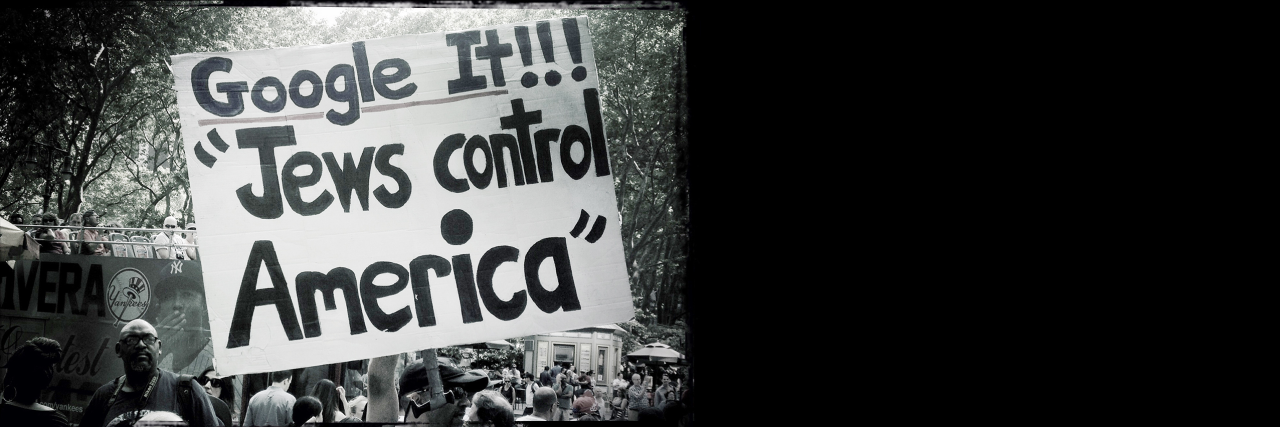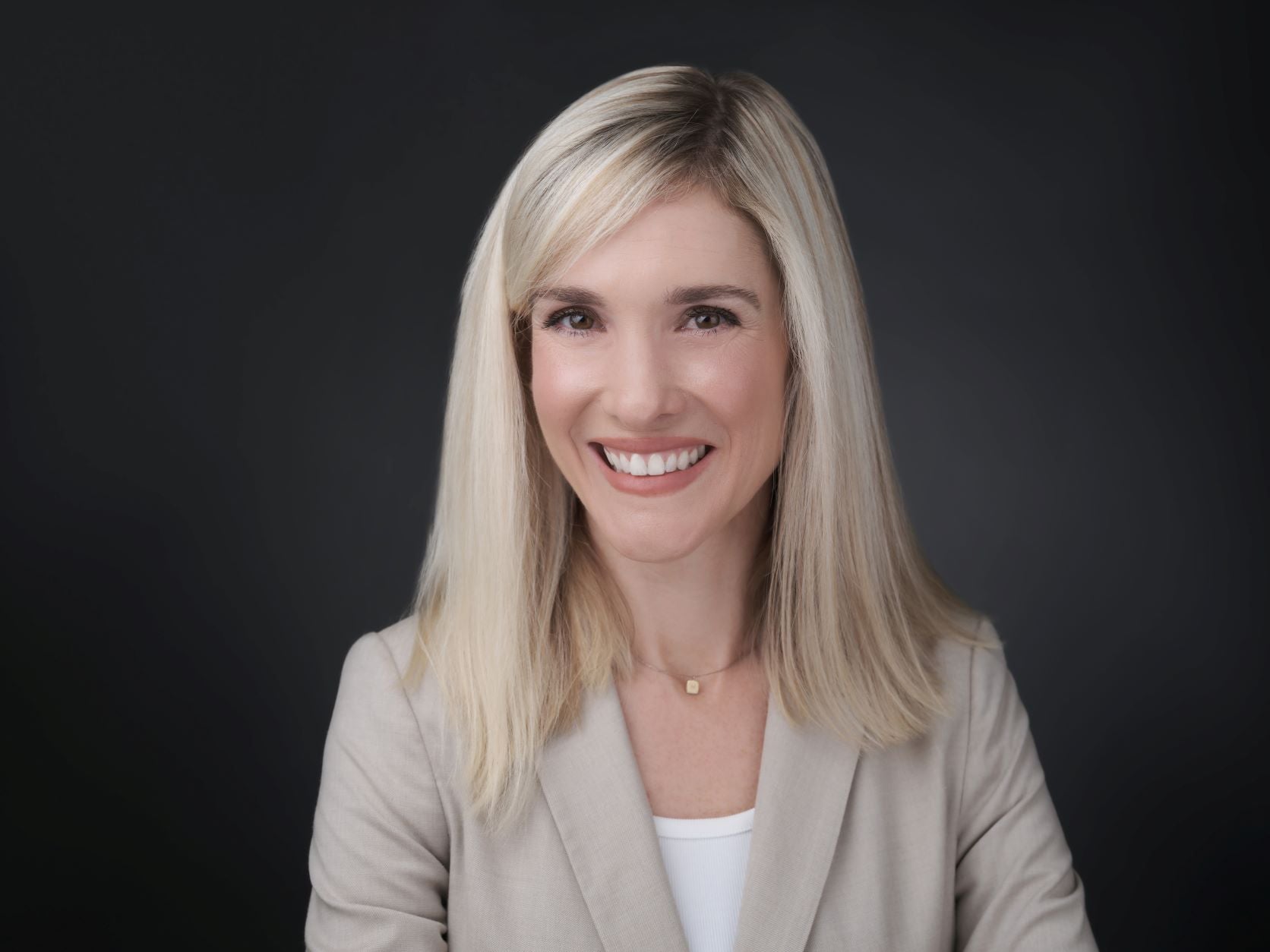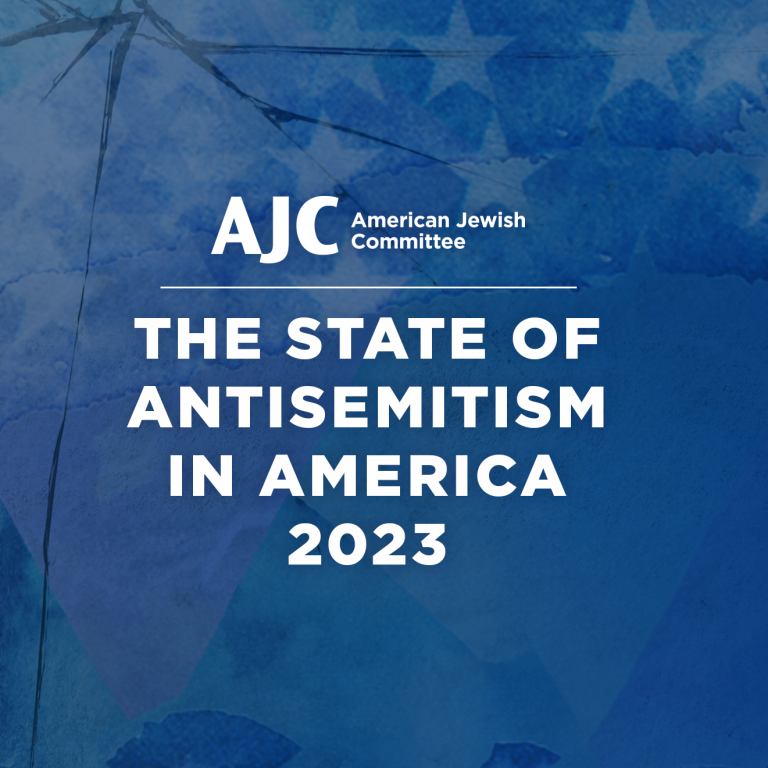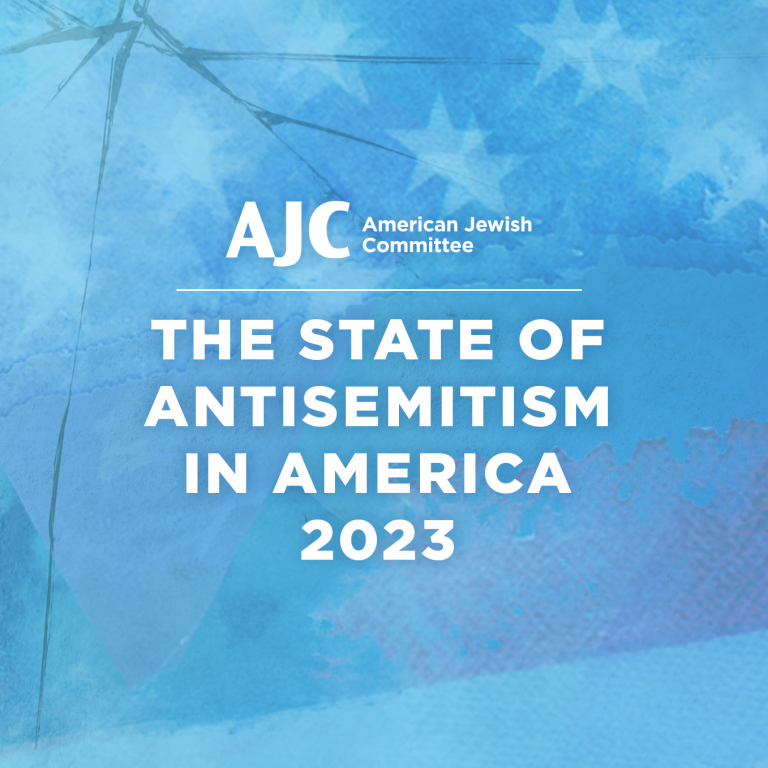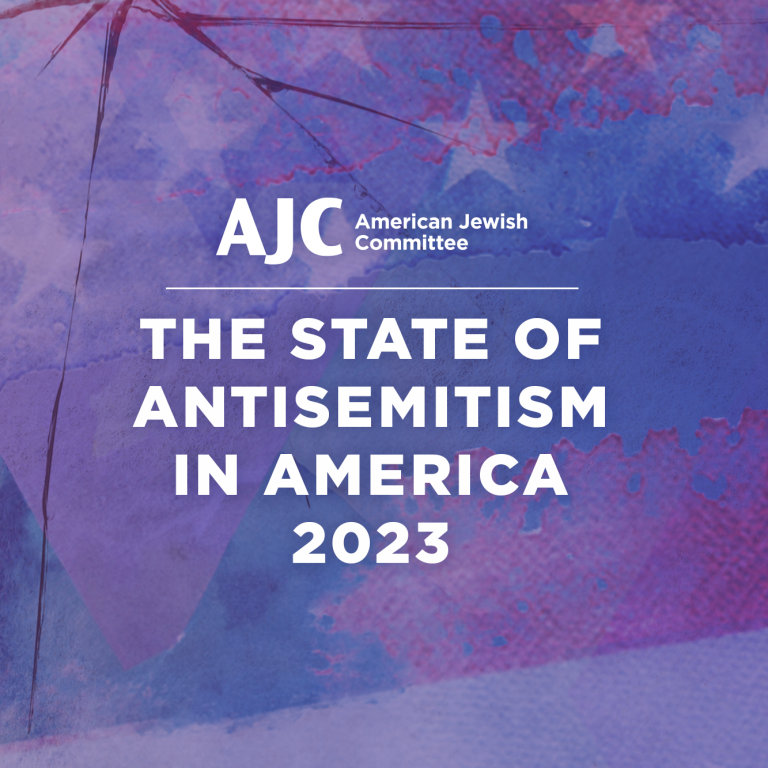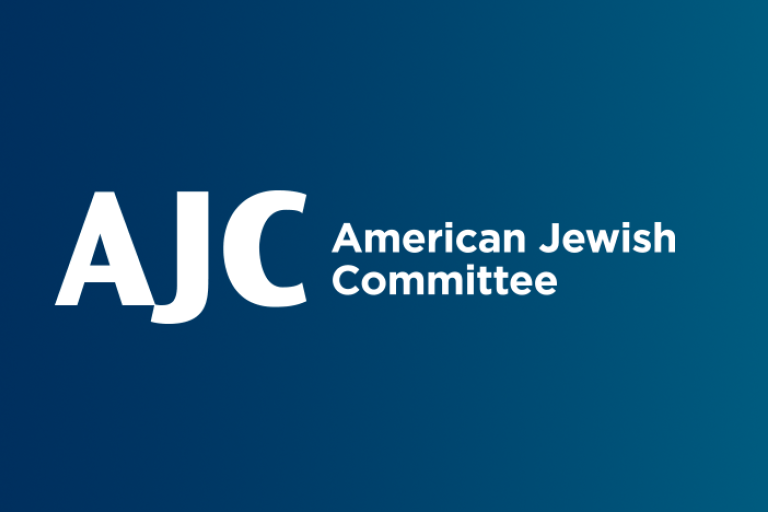February 13, 2024
This piece originally appeared in The Times of Israel.
The American public is waking up to antisemitism here at home with nearly three-quarters (74%) now saying antisemitism is a problem in the U.S., up from 68% in 2022, and 60% in 2021.
For years, American Jewish Committee (AJC) has polled American Jews and the broader adult population, providing one-of-a-kind insights into perceptions and experiences of antisemitism in the U.S.
In 2023, we found – for the first time – that the American public is understanding the magnitude of the problem.
Not only are they becoming more aware, they are also recognizing the severity. Those who believe antisemitism is a “very serious” problem increased significantly, from 22% in 2022 to 34% in 2023.
There has also been a noticeable rise in those who say antisemitism has increased over the past five years; 56% in 2023, compared to 47% in 2022 and 44% in 2021. This year, 22% of U.S. adults said antisemitism has increased “a lot” in the past five years, compared to 16% in 2022 and 13% in 2021. A staggering four in 10 Americans reporting they have personally seen or heard antisemitism in the past 12 months, with the majority (68%) witnessing it online or on social media.
These are some of the critical findings of AJC’s newly released State of Antisemitism in America 2023 Report, which reveals how American Jews are perceiving and experiencing antisemitism at new levels since AJC first launched this series of surveys in 2019. The data reflects the disturbing stories of antisemitism we see every day on the news, on social media, and hearing about from friends, family, and neighbors.
We heard from one 28-year-old Jewish male, “It is a terrifying time to be a Jew anywhere in the world but specifically in the U.S.” Another told us, “I was at an outdoor vigil mourning the murdered Israelis and three separate times, people drove past yelling out their car window ‘Kill them all’ among other things.”
It’s no wonder most American Jews are feeling less safe. More than 6 in 10 (63%) said that the status of Jews in the United States is “less secure than a year ago.” In 2022, 41% of American Jews felt less secure than the year before, and 31% said so in 2021. This percentage has doubled in two years!
And those feelings of insecurity are affecting people every day. Over the last year, nearly half (46%) of Jewish Americans avoided behaviors that would identify them as Jewish due to fears of antisemitism.
While these figures are far from exhaustive, they provide a glaring and concerning picture of what it’s like to live as a small minority under increasing threat – especially in the wake of the October 7 Hamas terror attack against Israel, which was the deadliest day for Jews since the Holocaust.
This realization is critical because antisemitism is a symptom of a much deeper societal issue.
We have become a lonely, low-trust society. In a 2018 study, 54% of Americans reported “they always/sometimes feel as though no one knows them well.” A 2021 report found the percentage of Americans who said they have no close friends quadrupled between 1990 and 2020. Americans are spending much more time alone. Two generations ago, roughly 60% of Americans said most people can be trusted. By 2014, only 30% did, and only 19% of millennials according to Pew. Low-trust societies break down.
Antisemitism feeds on loneliness and distrust. We must relearn trust in order to lower levels of antisemitism and hate in our country. Fortunately, 92% of US adults say it is important for Jewish communities and other religious and ethnic communities to increase cooperation with each other. The same percentage also says antisemitism affects society as a whole and everyone is responsible for combating it.
This is welcome news.
The U.S. National Strategy to Counter Antisemitism, released in May 2023, follows that premise; it seeks to build cross-community solidarity and collective action. Implementing it requires a receptive and responsive public.
We cannot effectively combat antisemitism if people cannot or do not recognize it and without a whole-of-society approach.
These insights provide a long-awaited note of hope for this consequential issue that has gone unrecognized far too long by the American public.
Learn More
